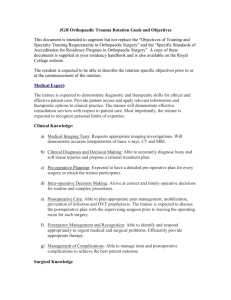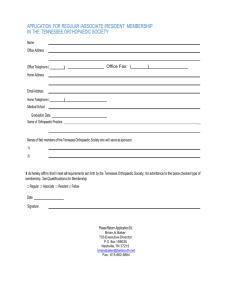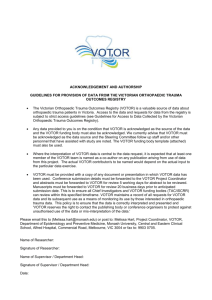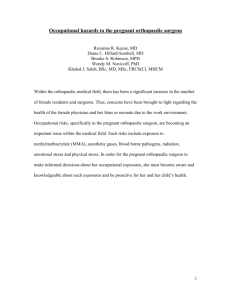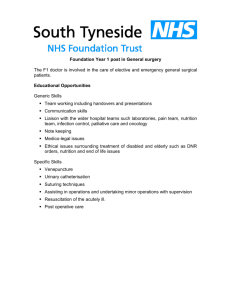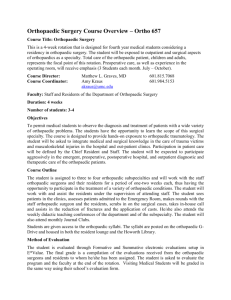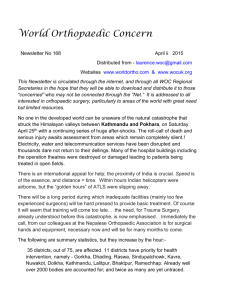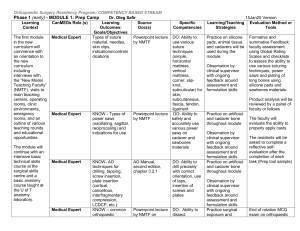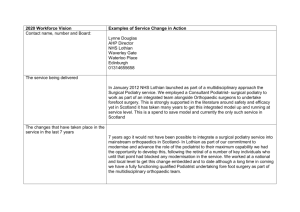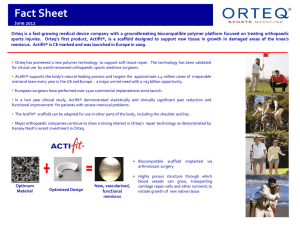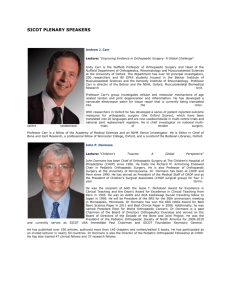Please structure descriptive studies as follows:
advertisement
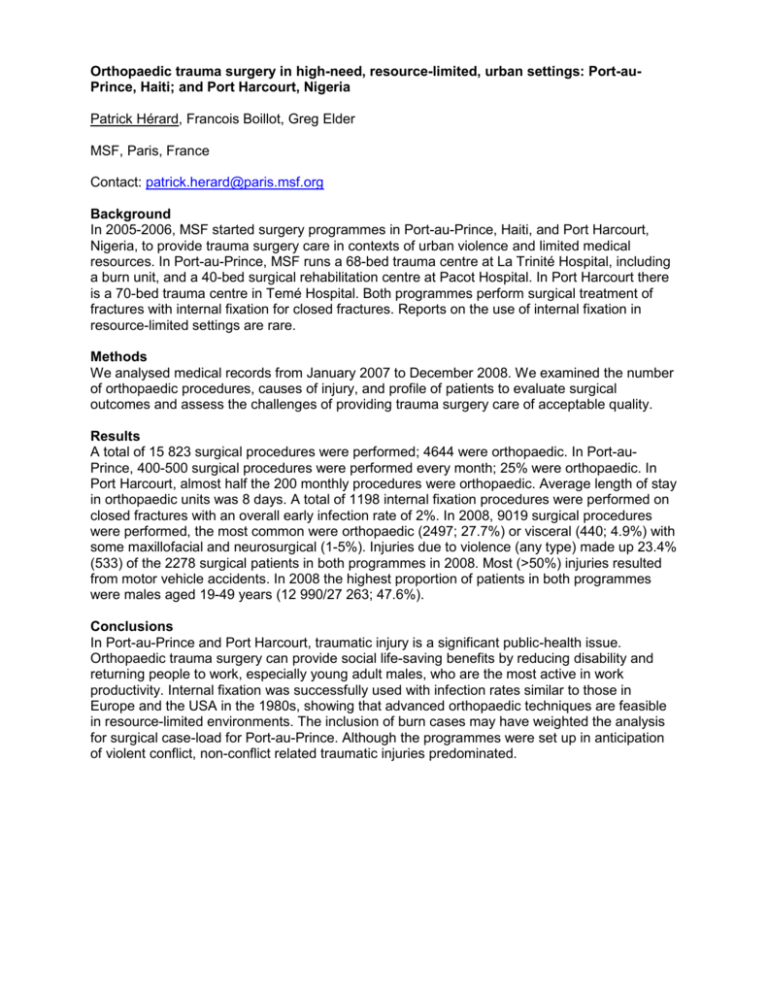
Orthopaedic trauma surgery in high-need, resource-limited, urban settings: Port-auPrince, Haiti; and Port Harcourt, Nigeria Patrick Hérard, Francois Boillot, Greg Elder MSF, Paris, France Contact: patrick.herard@paris.msf.org Background In 2005-2006, MSF started surgery programmes in Port-au-Prince, Haiti, and Port Harcourt, Nigeria, to provide trauma surgery care in contexts of urban violence and limited medical resources. In Port-au-Prince, MSF runs a 68-bed trauma centre at La Trinité Hospital, including a burn unit, and a 40-bed surgical rehabilitation centre at Pacot Hospital. In Port Harcourt there is a 70-bed trauma centre in Temé Hospital. Both programmes perform surgical treatment of fractures with internal fixation for closed fractures. Reports on the use of internal fixation in resource-limited settings are rare. Methods We analysed medical records from January 2007 to December 2008. We examined the number of orthopaedic procedures, causes of injury, and profile of patients to evaluate surgical outcomes and assess the challenges of providing trauma surgery care of acceptable quality. Results A total of 15 823 surgical procedures were performed; 4644 were orthopaedic. In Port-auPrince, 400-500 surgical procedures were performed every month; 25% were orthopaedic. In Port Harcourt, almost half the 200 monthly procedures were orthopaedic. Average length of stay in orthopaedic units was 8 days. A total of 1198 internal fixation procedures were performed on closed fractures with an overall early infection rate of 2%. In 2008, 9019 surgical procedures were performed, the most common were orthopaedic (2497; 27.7%) or visceral (440; 4.9%) with some maxillofacial and neurosurgical (1-5%). Injuries due to violence (any type) made up 23.4% (533) of the 2278 surgical patients in both programmes in 2008. Most (>50%) injuries resulted from motor vehicle accidents. In 2008 the highest proportion of patients in both programmes were males aged 19-49 years (12 990/27 263; 47.6%). Conclusions In Port-au-Prince and Port Harcourt, traumatic injury is a significant public-health issue. Orthopaedic trauma surgery can provide social life-saving benefits by reducing disability and returning people to work, especially young adult males, who are the most active in work productivity. Internal fixation was successfully used with infection rates similar to those in Europe and the USA in the 1980s, showing that advanced orthopaedic techniques are feasible in resource-limited environments. The inclusion of burn cases may have weighted the analysis for surgical case-load for Port-au-Prince. Although the programmes were set up in anticipation of violent conflict, non-conflict related traumatic injuries predominated.
